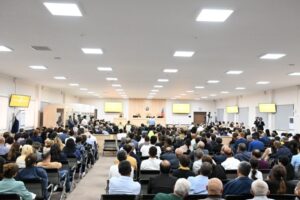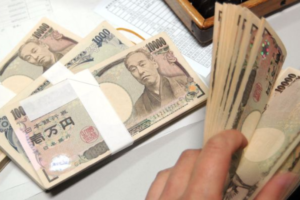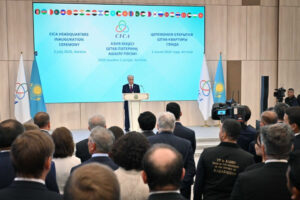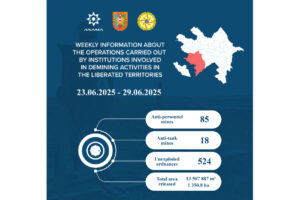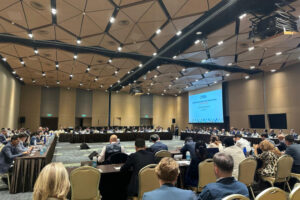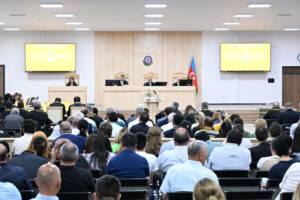Tokyo, 14 June, /AJMEDIA/
Japan’s parliament on Friday enacted revised laws to replace a controversy-plagued foreign trainee program with a new system that encourages workers from abroad to stay longer, as authorities look to address the serious labor shortage created by the country’s demographic crisis.
The changes also include a contentious new measure that allows the government to revoke permanent residence status for foreigners who deliberately fail to pay taxes or social insurance premiums, prompting concerns from those who have lived in Japan for many years.
The laws will take effect within three years of their promulgation in a landmark shift in Japan’s policy on accepting foreign workers.
The new system explicitly states it is designed to foster and secure foreign talent and to help inexperienced workers acquire skills needed to transition to the specified skilled worker scheme over three years.
It replaces the Technical Intern Training Program, which has been in place since 1993 to ostensibly develop the technical skills of foreign workers from developing nations. The program has been criticized as simply being an avenue for Japan to import cheap labor.
Workers will now be able to change their workplace within the same industry under certain conditions, provided they have worked in one place for over a year and their Japanese language and professional abilities meet certain requirements.
Amid unpaid wage scandals, long hours and other abuses, the restrictions on changing employers meant many trainees under the existing program quit their workplaces. In 2022 alone, over 9,000 trainees disappeared from their place of work.
Private firms will be excluded from facilitating transfers to prevent malicious brokers from taking advantage of workers, and supervisory organizations accepting foreign candidates will have to appoint external auditors to improve accountability.
As for the specified skilled worker scheme launched in 2019 to secure foreign labor, the Japanese government has in recent years expanded the scope of industries covered by the Specified Skilled Worker No. 1 and No. 2 visas.
Specified Skilled Worker No. 1 visa holders are allowed up to five years of residency in a wide range of industries. Holders can, under certain conditions, be granted the No. 2 visa, effectively making them permanent residents who can bring family members to Japan.
As of the end of 2023, trainees under the technical internship program rose 24.5 percent from a year ago to about 404,000 people, according to the Immigration Services Agency.
The number of specified skilled foreign workers was up 59.2 percent to around 208,000, of whom just 37 were holders of the No. 2 visa, agency data showed.
With the legislation expected to increase the number of permanent residents, the revisions also introduced tougher measures to enable the government to revoke the status. Individuals such as those who intentionally fail to pay taxes and social security contributions could have their status withdrawn or changed.
The provisions sparked criticism from opposition lawmakers, with some saying individual cases should be heard before making a decision that has a significant impact on permanent residents’ lives.
Justice Minister Ryuji Koizumi sought to tamp down concerns at a Diet session on Thursday, saying the measures would apply only to “malicious cases” and that the vast majority of holders would be unaffected.
But the pro-Seoul Korean Residents Union in Japan, widely known as Mindan, urged the Japanese government not to abuse the steps that make permanent status holders feel continuously uneasy.
“We will persistently urge the government to review the clause of the immigration law…so that the legal status of foreign nationals who have long been living in Japan would not be unreasonably destabilized,” the group said in a statement.
Japan’s foreign population hit a new high of over 3.4 million in 2023, while the number of Japanese citizens fell by 595,000 people from a year earlier to 124,352,000 as of Oct 1, declining for the 13th straight year.
The legislation passed the House of Councillors, with the backing of the ruling Liberal Democratic Party and its junior coalition partner Komeito party as well as some oppositions, after clearing the House of Representatives last month.




